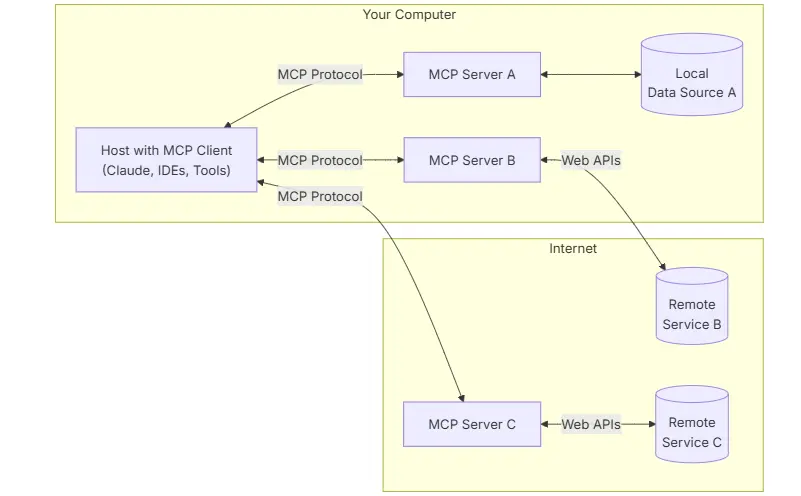Google Ads API is experimenting with a new technical standard that could eventually change how PPC managers integrate AI tools into campaign workflows: the Model Context Protocol (MCP). While still in its early stages, the concept could streamline the way external GenAI tools interact with Google Ads accounts by standardizing access and permissions.
We reviewed the recent MCP announcement and how it fits into a broader move toward more flexible, privacy-conscious, and LLM-friendly architectures. We’re not looking at a fully deployed product yet—but it’s a signal that Google may soon make third-party AI tooling far more interoperable.
What Is Model Context Protocol (MCP)?
Originally introduced by the Claude/Anthropic ecosystem, MCP is an open protocol that lets LLMs securely access external data or tools through a standardized interface—similar to what USB-C did for hardware. Instead of needing hardcoded API access for each application, GenAI tools can interact with “MCP servers” that expose data or functions (e.g., product catalogs, reports, campaigns) in a predictable way.
In the diagram published by modelcontextprotocol.io, you’ll notice three main roles:
- MCP Clients – Hosts like Claude or IDEs that request context
- MCP Servers – Interfaces that expose local or remote data sources
- Data Sources – Could be campaign performance data, assets, or API-connected services

Source: modelcontextprotocol.io
Why Google Ads Might Care
Google is exploring how to bring MCP into their Ads API ecosystem—likely as a way to support a growing number of GenAI assistants, copilots, or optimization tools that require secure, structured access to advertising data. Instead of giving broad API keys or scraping exports, an MCP server could allow an AI agent to retrieve, say, campaign CTRs or ad group performance under strict permission rules.
The long-term vision? Smarter GenAI-powered assistants that analyze, visualize, or even recommend optimizations without needing custom-coded integrations for each tool.
What This Means for PPC Managers
This isn’t a live feature yet, but PPC professionals should monitor this initiative closely. If adopted, it could unlock more flexible and secure ways of:
- Connecting AI analytics assistants with campaign data
- Running internal copilots for asset creation or budget recommendations
- Customizing workflows without the overhead of Google Ads API development
It also raises important questions: Will advertisers be able to control which AI tools can access their data? How will privacy and permissioning work? These are likely topics Google will refine as they receive feedback.
What You Can Do Now
- Watch the Model Context Protocol website for updates and examples
- Consider how your internal teams or agencies might use AI copilots in the future
- Join Google’s API feedback loop if you’re actively building on Google Ads API
Key Takeaways
- MCP is not a feature yet, but an emerging open protocol for securely linking GenAI tools to ad-related data
- Google Ads API is exploring its potential but hasn’t announced a deployment timeline
- PPC managers should monitor this to anticipate shifts in campaign automation and AI-assisted tooling
We will continue tracking how these AI infrastructure shifts could impact advertisers. If MCP evolves into a real integration layer for campaign data, it could simplify everything from reporting automations to AI-driven optimizations.
